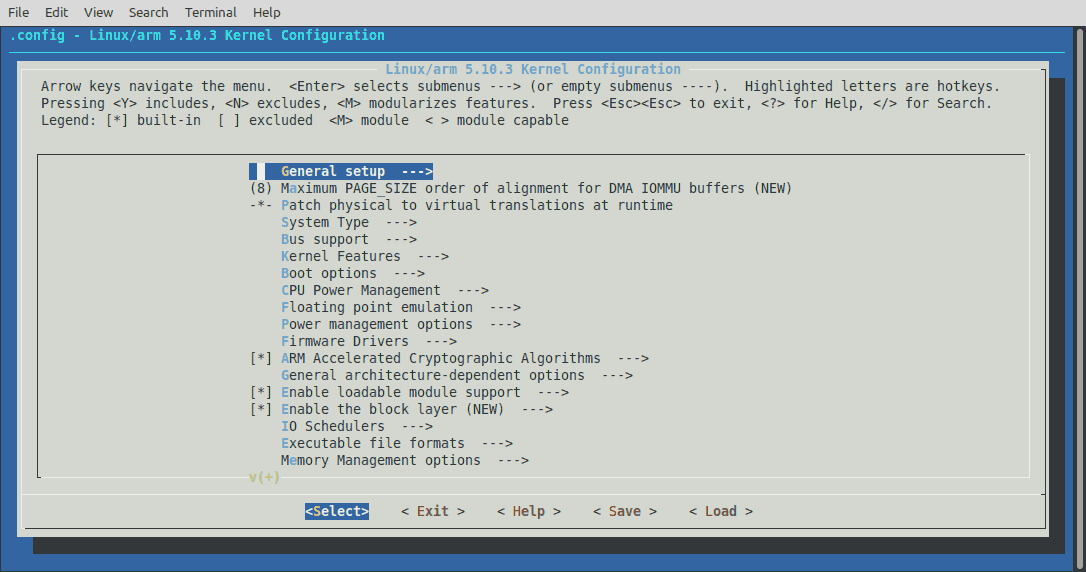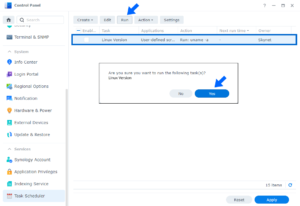
Some of these commands provide only the kernel version, whereas others provide more detailed system information. The output of all these commands is different. The Linux operating system comes equipped with various commands to display Kernel versions. The Linux Kernel versions must always match exactly with the supported version before you perform any updates, debugs, installs, or diagnoses on your Linux system. This could also be the machine architecture, such as x86_64. We are using Ubuntu distribution desktop version, and thus it is showing generic.

#HOW TO CHECK LINUX KERNEL VERSION PATCH#
27 - Fourth number is the patch and bug fixes level.0 - Third number is the minor revision.13 - Second number is the major revision.Let’s understand what these numbers mean: It does not store any personal data.Each number in the Kernel version string is separated either by a dot or a hyphen. The cookie is set by the GDPR Cookie Consent plugin and is used to store whether or not user has consented to the use of cookies. The cookie is used to store the user consent for the cookies in the category "Performance". This cookie is set by GDPR Cookie Consent plugin. The cookies is used to store the user consent for the cookies in the category "Necessary". The cookie is used to store the user consent for the cookies in the category "Other. The cookie is set by GDPR cookie consent to record the user consent for the cookies in the category "Functional". The cookie is used to store the user consent for the cookies in the category "Analytics". These cookies ensure basic functionalities and security features of the website, anonymously. Necessary cookies are absolutely essential for the website to function properly. The commands should work on all popular Linux distributions including, Debian, Arch Linux, Fedora, CentOS, Red Hat, Ubuntu, Kali Linux, OpenSUSE, Linux Mint, and more.
#HOW TO CHECK LINUX KERNEL VERSION HOW TO#
We have shown you how to find the version of the Linux kernel running on your system from the command line. Use cat or less to display the contents of the file: $ cat /proc/version Output

Information about the running kernel is stored in the /proc/version virtual file. The /proc directory contains virtual files with information about the system memory, CPU cores, mounted filesystems, and more. Kernel: Linux 4.15.0-54-generic Using /proc/version File You can use the grep command to filter out the Linux kernel version: $ hostnamectl | grep -i kernel Output Static hostname: linuxize.localdomain Icon name: computer-laptop Chassis: laptop Machine ID: af8ce1d394b844fea8c19ea5c6a9bd09 Boot ID: 15bc3ae7bde842f29c8d925044f232b9 Operating System: Ubuntu 18.04.2 LTS Kernel: Linux 4.15.0-54-generic Architecture: x86-64

It also displays the Linux distribution and kernel version: $ hostnamectl Output The hostnamectl utility is part of systemd, and it is used to query and change the system hostname.

generic – Distribution specific information.The output above shows that the Linux kernel is 64-bit and its version is 4.15.0-54, where: To find out what version of the Linux kernel is running on your system, type the following command: $ uname -srm Output The uname command displays several system information including, the Linux kernel architecture, name version, and release.


 0 kommentar(er)
0 kommentar(er)
